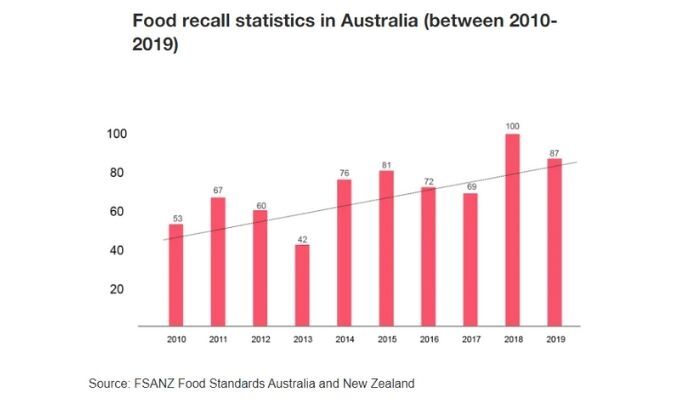
Providing trust in the safety of your supply chain.
Food is a fundamental requirement in daily life. Consumers expect that the food they are consuming is safe and free from contamination. Significant implications on human health, consumer confidence, reputation, and the bottom line of organisations mean food safety assurance must be at the top of the list for risk management and strategic operations for any business in the food supply chain industry. PwC’s Certification and Compliance have a globally-proven framework and methodology to help your business maintain food trust in the market.

The food industry has never faced more challenges. Enhancing trust in food is a growing concern in a climate where public confidence in producers, processes, and sellers – even government regulators – has been rocked by many high-profile scandals.
The diverse nature of food production means there is no one way to safeguard your supply chain. Depending on their production, position within the food supply chain, or distribution and retail pathway, we can assist organisations in providing assurance over their operations - helping demonstrate their commitment to food safety and providing confidence to consumers.
|  HACCP HACCPHACCP (Hazard Analysis Critical Control Points) is a science and preventative risk-based approach for identifying, analysing and controlling food safety hazards to protect the health of consumers. Detailed risk assessments, identify any potential microbiological, chemical, allergen and foreign object risk, and subsequent controls to eliminate or reduce the food safety risk to an acceptable level. |
ISO 22000 was developed by the International organisation for standardisation (ISO) for the management of food safety systems. Version 2018 of the standard sets out the requirements for a Food Safety Management System at 2 levels - Organisational Planning and Operational Planning. It is HACCP (Hazard Analysis and Critical Control Points) based and can be applied to all organisations within the food supply chain regardless of its complexity. |
|
|
We offer a new approach to Food Safety audits and certification. We have combined a purpose-built technology platform with a client-centric service model to make the process more streamlined, more consistent, and more valuable than ever before.
 National reach, local engagementA local client relationship manager and our Australia-wide network of Food Safety system auditors mean that no matter where your business is, we will be able to support you. |  Skilled and experienced auditorsThe auditor assigned to your business will not only be highly qualified but will also have specialist experience in your industry. |
Food Safety Culture is the shared values, beliefs and norms that affect mindset and behaviour towards food safety throughout an organisation.
Our Food Safety Culture Assessment provides clear insight on the maturity level of an organisation's food safety culture taking into consideration multiple dimensions about how people feel, think, and act towards food safety and the impact it can have on the production of safe food. Our Food Safety Culture Assessment validates and provides a benchmark for an organisation's food safety culture and how they can review and improve upon their food safety management systems.
No matter where you are in the Food Safety process, switching to PwC is free, secure, and straightforward. If you’d like to find out more about how PwC can help your business in this area, or get an obligation-free quote for our certification services, please get in touch.
Posted By
_1.png)